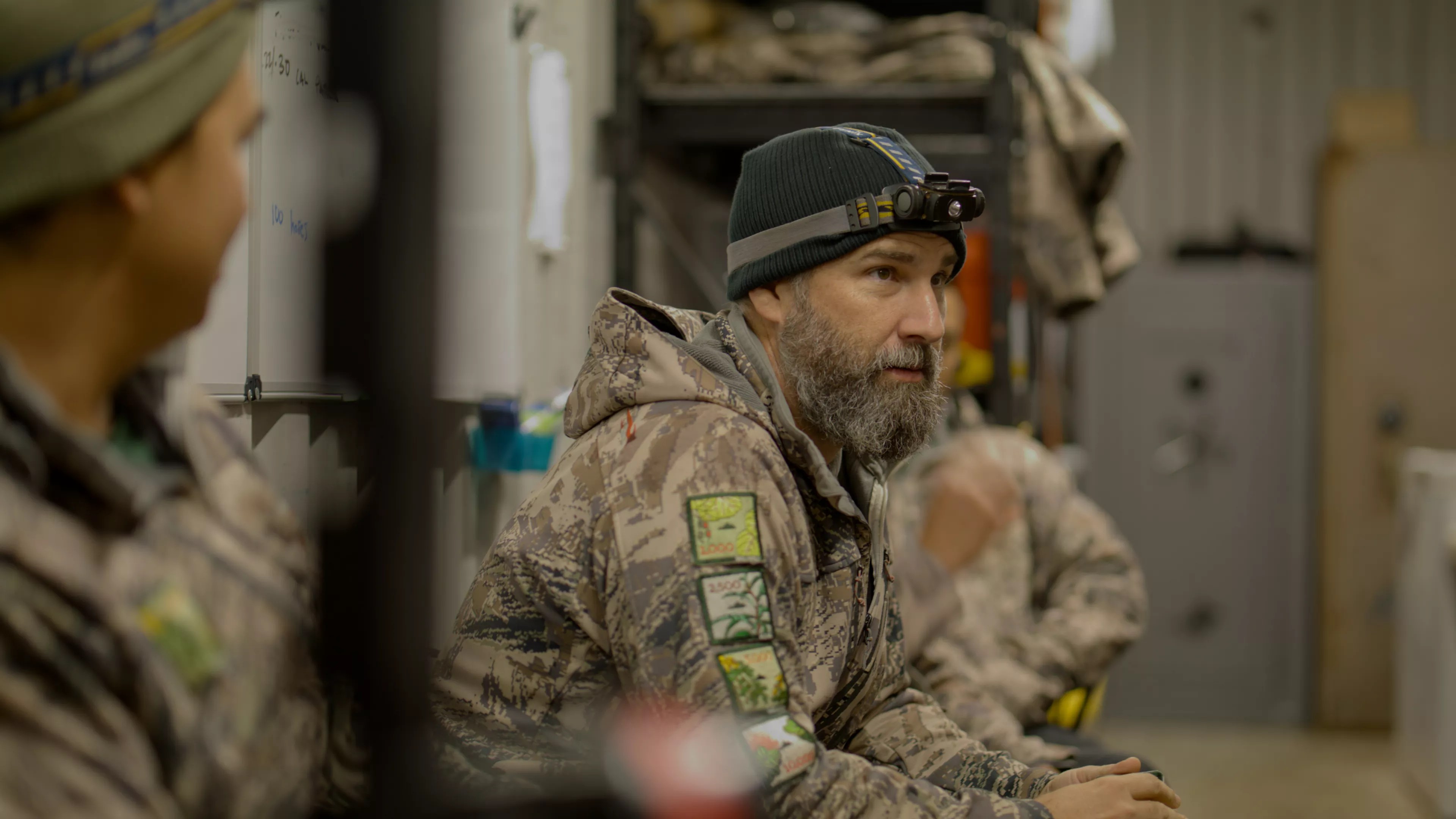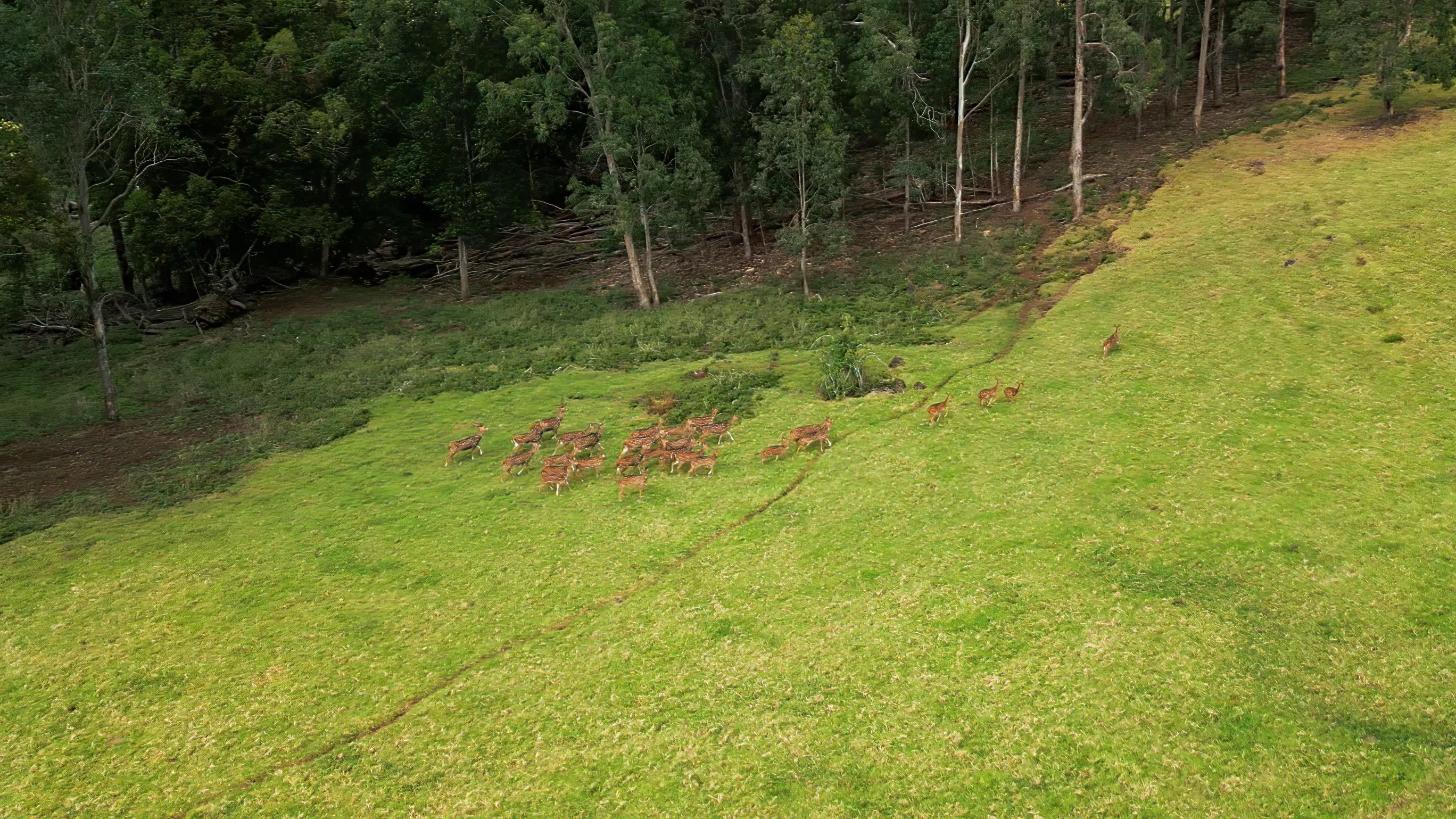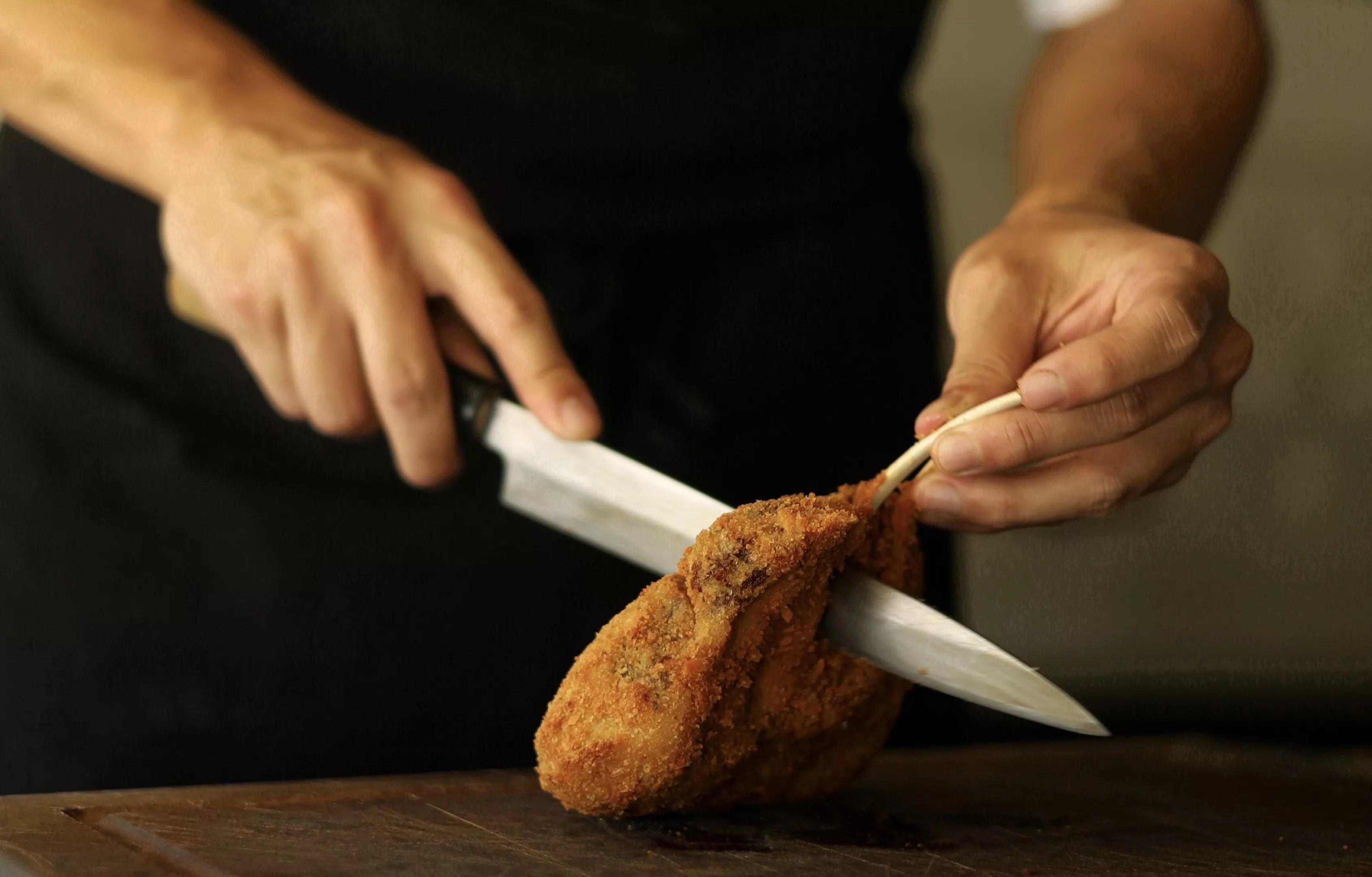
Olivia Restaurant

Audio By Carbonatix
One of the healthiest red meats in the world comes from Hawaii, and now it can be eaten in Denver thanks to Olivia in Washington Park and its partnership with Maui Nui Venison.
That’s right: The nutrient-dense meat comes from a deer. But unlike the wild game that makes up most of the venison one might have in Colorado, the axis deer inhabiting the island of Maui is leaner, has more protein, and has an overall pleasing flavor without the signature gaminess venison is known for. Eating the deer also has more of a positive environmental impact, since the South Asian animal is an invasive species in Hawaii.
The initiative to help save the ecosystem of the island from the fast-breeding deer comes from Maui Nui Venison’s husband-and-wife founders, Jake and Ku’ulani Musie, who started the business in 2017 with the idea of not only offering the delicious and healthy meat to the masses, but to eradicate the invasive animals.

Jake Musie in the field during the axis deer hunt that Olivia chef Cody Boi and founder Austin Carson went on in Maui.
Olivia Restaurant
“Jake now has a company that manages the harvesting of these animals, all with the big picture of Maui in mind,” says Olivia co-owner Heather Morrison. “It is a business for Jake, but they don’t have sales goals, only management goals. They are in the business of saving the ecosystem of Maui.”
The brown, speckled axis deer first came to the islands in 1868 as a gift to King Kamehameha V, back when Hawaii was independent from the United States. Native to Nepal, with no natural predators and a year-round breeding cycle, the deer multiplied, stripping the land, taking food from herd animals, spreading illness and generally causing havoc to the island’s ecosystem. Today, axis deer are a real problem – something Musie hopes to change through sustainably harvesting the animal for meat. Last year alone, his team harvested around 500,000 pounds of venison.
So how did the axis deer invade the Denver-based Olivia? Morrison and her husband, Olivia co-owner Austin Carson, had recently started incorporating the venison into their home-cooked meals after hearing about the program. It’s easy to order online from the Maui Nui Venison website, so they had some shipped in. For Morrison, eating the nutrient-dense meat changed her life.
“Once I started eating it, my always-anemic body had perfectly healthy iron levels,” she says. “It’s been tested, and it’s the most nutrient-dense red meat you can get.”

Axis deer run wild in Maui, destroying the ecosystem. Luckily for eaters, they’re delicious.
Olivia Restaurant
Plus, she adds, it tastes great. So good that Morrison and Carson brought it to their other business partner at Olivia, chef Ty Leon. He agreed, and soon he and another Olivia chef, Codi Bui, put it on the menu, using it in pasta dishes, serving it in fillet form, and playing around with ground venison.
“I grew up hunting, and I am not a fan of game meat, but this is completely different,” says Leon. “It’s not gamey whatsoever. It’s a rich kind of meat, which is weird to say, but it’s delicious.”
In tandem with Olivia’s ongoing dedication to education and literally exploring the world of food with its staff, in January Bui traveled to Maui with Morrison and Carson. The goal of the trip was to see how the deer were harvested, learn about Musie’s commitment to the environment and his company, and garner inspiration for a special dinner featuring axis deer at the restaurant back in Denver. On August 30, guests of Olivia can find out just what Bui and the team learned, as well as meet Musie and ask questions about the deer, Maui Nui Venison and the company’s conservation efforts. Reservations are available via Tock.
The meal will include five courses meshing Polynesian flavors with Olivia’s signature Italian fare, with the axis deer as the star. Dishes include tuna crudo with kombu shoyu; kalua lasagna made with braised venison shank and banana leaf-infused pasta; and rib chops of venison done katsu-style with edamame pesto. Also enjoy venison culurgiones (a type of Sardinian ravioli) with a saimin consommé, a ramen-like soup found in Hawaii. For dessert, expect a pile of the famed Hawaiian fried-dough malasadas, which will be served with passion fruit and coconut.
Don’t miss the special cocktail menu, either. Carson has curated eight Polynesian-influenced libations, including an espresso martini made with Hawaiian Kona coffee and rum-raisin amaro; a Negroni Bianco made with rum agricole, caramelized coconut and black pepper bitters; and the Rye Ti, made with rye, blackstrap, Cointreau, macadamia and mint.

Chef Cody Bui of Olivia slices an axis deer rib chop.
Olivia Restaurant
The dinner costs $125 per person, with an optional $75 wine pairing from Halter Ranch, a winery in Paso Robles, California, known for its sustainable wine production. Cocktails are sold separately.
Even if the dinner sells out or you can’t make it that night, Olivia still offers Maui Nui Venison on its day-to-day menu, though the dish changes. Currently, diners can order Venison Polpette, a type of meatball with foie gras cream, potato mousse and huckleberry preserves. The venison has also appeared in a rendition of osso buco, venison strip loin and an array of pasta dishes.
Not only is Olivia one of the only places in the country to serve the axis deer, but in Denver, it’s hard to find deer meat at any restaurant. In fact, venison refers to not only deer meat, but elk, moose, caribou, antelope and pronghorn, too. The two main game meat places in the area, the Fort in Morrison and the Buckhorn Exchange in Denver, both serve elk, but no deer meat. Eaters can even find elk to cook at home from some meat purveyors such as the Local Butcher in RiNo’s Denver Central Market.
I was able to try axis deer at the 2022 Little Nell Culinary Fest in Aspen, when chef Krista Garcia, executive chef at Hotel Wailea in Maui, brought it with her to cook at the hotel. It was, as the others say, simply wonderful.
Research on the subject of local venison also brought the deer-meat cut known as the Denver leg to light. Game expert Jason Nauert, lovingly known as Jason the Butcher, says the Denver leg includes seven muscles in the back leg. In essence, he adds, it’s a deboned version of a deer leg. As to why it’s called the Denver leg, he says he doesn’t know, but he mentions that people simply seem to like to name things after the Mile High City (think Denver omelet and Denver steak).
Yet even though there’s a whole cut of venison named after Denver, there aren’t many places to actually get it without going out and hunting a deer yourself. Instead, skip the whole leg, and head to Olivia for a taste of axis deer. While it’s not a local product, everything about the meat is positive and, perhaps more important, delicious.
Olivia is located at 290 Downing Street and is open from 5 to 9 p.m. Tuesday through Saturday. For more information, visit oliviadenver.com.